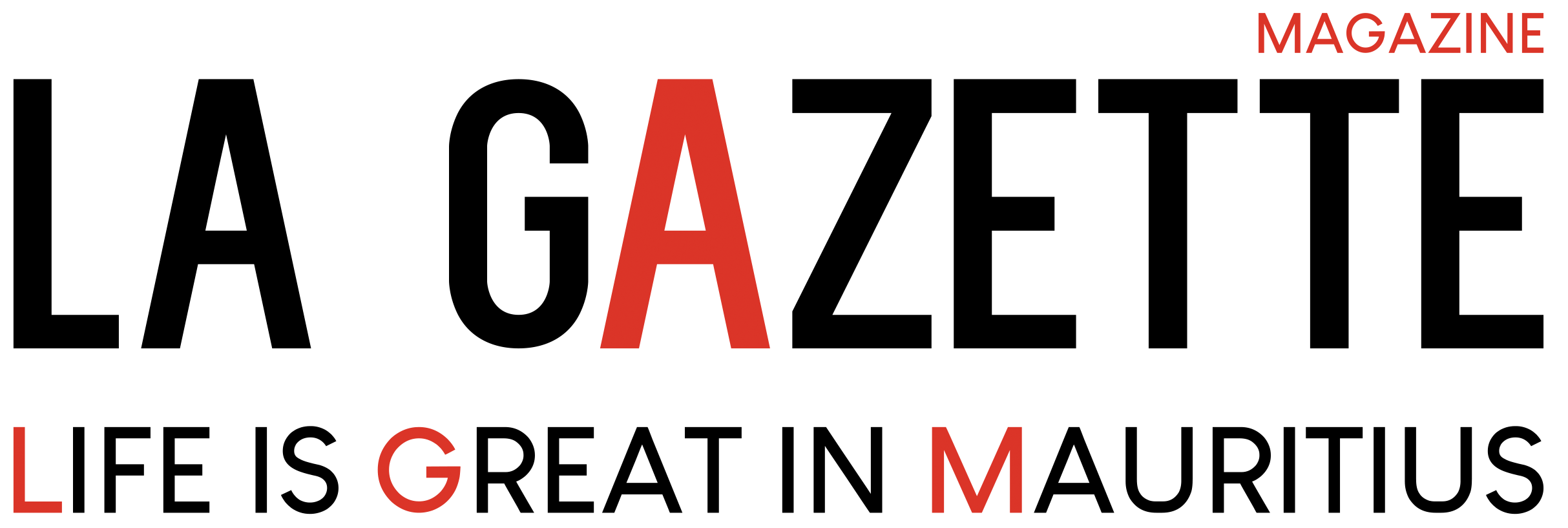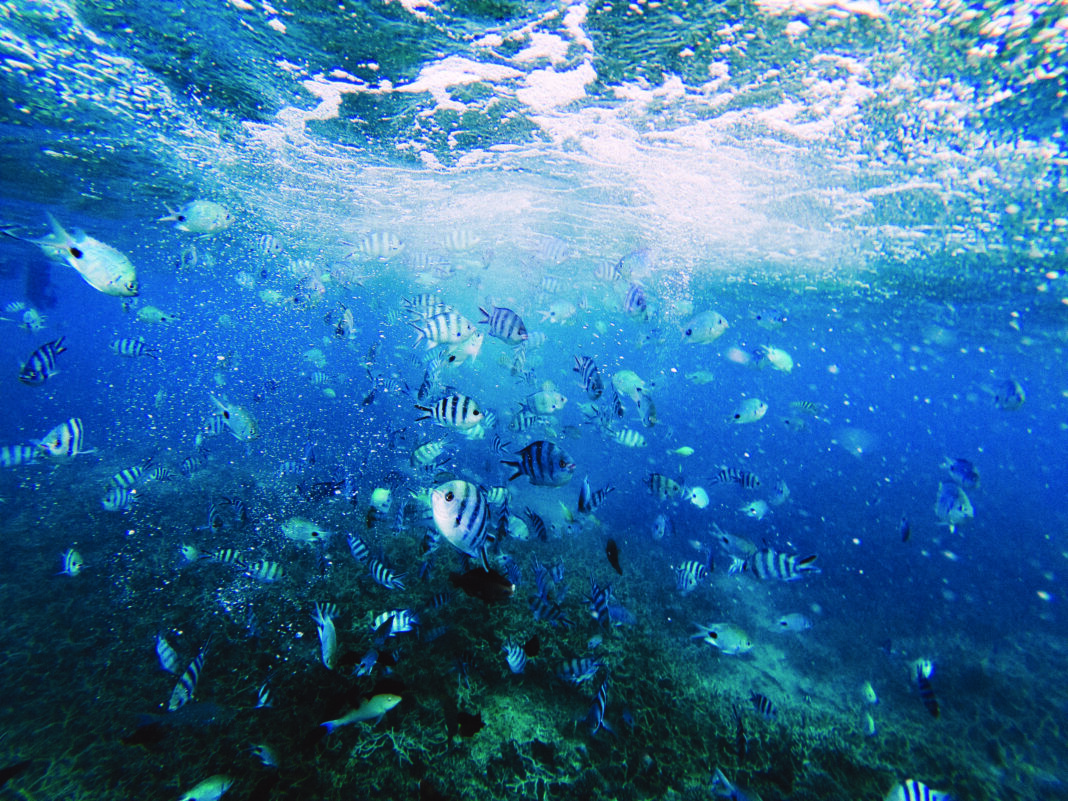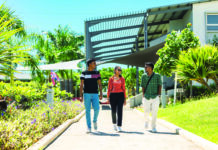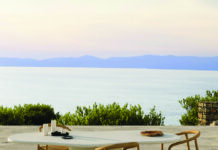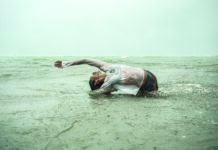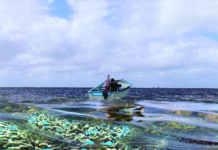In 1972, for the first time, the United Nations made ecology a major issue. Over the decades, collective awareness has grown, and environmental policies the world over have sought to respond to the fundamental challenges – ever more numerous, ever more imperative – that our planet is desperately throwing at us. The stakes are colossal, affecting all economic sectors and fields of activity. And one of them is even more closely linked to this burning issue: tourism.
More than just an act of good citizenship, now inseparable from the eco-responsible lifestyle that should be the only one adopted by all, ecological commitment within the tourism industry should set an example. In its entirety, this industry accounts for 25% of the Mauritian economy, with the distinctive feature of involving various stakeholders: professionals, tourists and the general public.
Mauritius – a far cry from the policy of concretization introduced in the 70’s and 80’s in many parts of the world and aimed at mass tourism without any concern for the environment – represents for its clientele, mainly from Europe, the image of a paradise destination, authentic and untouched.
Let’s face it, there’s still – here and elsewhere – a lot to be done in terms of protecting land and marine ecosystems, fighting pollution (a virtually cultural scourge in Mauritius), finding solutions for waste treatment, improving the health and social conditions of the population, developing the circular economy… But let’s congratulate ourselves, because we’re on the right track. Towards healthier, cleaner behaviour. A greener, bluer tourism industry! The latter is the answer to the expectations of a clientele that is becoming increasingly aware of the need to respect the environment. European visitors in the first half of 2022 were mainly French, German and British, who are now undeniably more committed to the ecological cause than other segments of the travelling public! These distant tourist markets (and let’s forget the sorry carbon footprint for a good cause) are primarily targeting the 5-star luxury hotels for which our island has always been famous. If the philosophy of the latter is to offer (and maintain) excellence in their services, it cannot be conceived without the highly topical and fundamental notion of sustainability. In other words, without making our guests active or passive members of an eco-responsible holiday.
Hotel groups at the heart of the system
For years now, the Mauritian hotel industry has been taking responsibility and going green. In addition to the societal imperative of zero plastic, it is consciously practicing virtuous ecology. As much for the planet as for its inhabitants. For employees and customers alike.
At Beachcomber, two addresses are close to the Unesco World Heritage site of Morne Brabant, and two others face two highly protected marine parks. The natural heritage on offer to visitors must be safeguarded. Through its Environmental and Social Charter, the hotel group (which has been present on the island for seven decades) has made 52 commitments in 8 areas. This major project supports community development through the Fondation Espoir Développement. Pointe, monitors and updates actions taken on the ground to reduce the carbon footprint. Recycling wastewater in the treatment plants of its eight resorts covers almost all their irrigation needs. Aerators on faucets and low-flow shower heads intelligently regulate consumption. Desalination units supply drinking water to the Trou aux Biches and Morne Peninsula resorts. 3,500 photovoltaic panels cover the roofs of all hotels, generating energy savings of up to 20%; variable speed drives on energy-hungry appliances save up to 40%. The same percentage of waste is recycled, and the kitchens are supplied locally, with the Made in Moris label as a priority. In collaboration with FoodWise, surplus food is distributed to neighboring communities. The Victoria Resort & Spa has just achieved a fine 88% target score for “The Pledge on Food Waste” accreditation, covering 95 assessment criteria.
The Attitude group (created in 2008) is resolutely eco-committed. Local products are everywhere, from decoration to the plate, promoting Mauritian craftsmanship and talent. By 2022, the aim is to reach 50% of the group’s food and beverage from companies with the Made in Moris label has been well exceeded! Preferring to take things one step at a time to ensure that all procedures are properly applied, the project to recycle and recover all waste will be completed in 2023. This will be the year in which the Group faces another titanic challenge: the analysis of scope 3 of its carbon footprint, representing, among other things, the entire purchasing chain. At all our sites, the Tea, coffee, sugar and local snacks are supplied in glass containers in the bulk stores. Water fountains are available everywhere. At the Group’s Poz spas, theosmetics are natural, sun creams mineral. Moringa oil, pure coconut oil, Chamarel coffee beans… form the basis of our skincare products. The Green Attitude Foundation finances various sustainable development projects, while Ongoing guest education sessions are run by biologists from the Marine Discovery Centre, located at the Lagoon Attitude. Collaborating with local NGOs and organizations, the center acts to safeguard humpback whales, hawksbill turtles and endemic species.
For the Sunlife group (on the Mauritian market since 1976), responsible tourism also means protecting the lagoon, restoring its ecosystem and reducing pollution. When you consider that coral reefs are home to over 25% of the world’s marine life, this is a key issue. Since 2019, at the La Pirogue hotel research center in Flic en Flac, a biologist has been working on coral bleaching in their environment, while raising awareness among vacationing guests. The coral breeding project, designed to replace damaged species and encourage existing ones to flourish, is home to 550 coral fragments. Long Beach, on the east coast, operates the first microfragmentation nursery. Winner of an international award at the end of 2021 for the best sustainable development initiative, the farm enables coral to grow forty times faster than on the reef, thanks to the scientific discovery of American researcher David Vaughan. The group’s four resorts also have their own vegetable gardens, tended by the restaurant brigade, and reduce their energy consumption by using 100% renewable energy for hot water and producing 90% of lighting with LED bulbs. To raise children’s awareness of the importance of the bee, an essential element in the great cycle of life, Sunlife’s new mascot – the little bee named Izzy – will be dedicated to the children’s clubs and their activities. As for the Suncare Foundation, it is continually working on numerous community and environmental projects.
Beyond hotels
Among the growing flow of tourists that our small territory has been recording since its reopening to the world in October 2021, there are those who stay in hotels, making the single stay their eco-responsible vacation experience, and those who want to give another meaning to travel, beyond the confines of the resort, in search of an authentic experience. Receptives and other operators immerse travelers in the country’s cultural, historical and natural heritage. Whether individual or organized, the visitor’s approach gives him or her a front-row seat to the achievements on the ground: excursions, hiking, horse-riding, cycling, non-motorized water sports, etc. are all zero-carbonactivities in which the ecotourist indulges in (a priori) unspoiled surroundings. Environmental awareness is fostered by the ongoing ecological actions of foundations, collectives, NGOs and other stakeholders, as well as by sensible practices in areas indirectly linked to tourism, such as sugarcane cultivation. “We produce what the tourist industry consumes”, says Jacqueline Sauzier, General Secretary of the Mauritius Chamber of Agriculture (MCA), a private association founded in 1853. And to reassure the collective imagination that still associates agriculture with pollution, she adds: “I don’t want everyone to be lumped together: the members of the Chamber of Agriculture use phytosanitary products sensibly, as they are Bonsucro-certified, a standard that advocates a very reduced use of herbicides and chemical fertilizers.” Clearly, protecting biodiversity and ecosystems through healthy, respectful agricultural practices benefits both Mauritians and tourists.
United we stand!
In charge of conservation, research and education projects… the NGO Reef Conservation has always joined forces with the members of AHRIM (Association des Hôteliers et Restaurateurs de l’île Maurice) to guarantee ecological tourism. The Snorkeling Trail in partnership with the Radisson Blu Poste Lafayette; Belombrepedia, the digital encyclopedia of Bel Ombre’s natural heritage, initiated by the Rogers Foundation; the Coral Restoration project, co-financed by the Compagnie de Beau Vallon hotels, among others, are all projects that are strong because they are developed in union!
On the sidelines of COP27, SUNREF Mauritius, the Agence Française de Développement (AFD) “green finance” label, mobilized the international community and itspublic and private sector representativeslast November. The aim: to strengthen local ecosystems and limit coastal retreat. Official figures reveal an annual sea-level rise of 5.6 mm in Mauritius and 9 mm in Rodrigues, when the global average is 3.3 mm. L mall Island Developing States (SIDS) are directly threatened by climate change. In partnership with several Mauritian banks, AFD has made available a a credit line of 85 million euros to encourage local companies and individuals to invest in renewable energies, water consumption reduction and treatment, coastal zone management, agroecology, etc. SUNREF Mauritius stimulates these investments through green loans (green loans for sustainable purposes), which include premiums in the order of 5% to 16% of the loan amount. Will protagonists with little or no awareness of the ecological cause be more aware of the financial benefits?
The Mauritian Wildlife Foundation (MWF) – the largest local NGO dedicated to the protection of endangered plant and animal species – is also involved. visitors become active members! On ecotours in small groups, they become curators for a day, observers of seabirds, witnesses to the preservation of the biosphere in the national park, the nature reserves of Ile aux Aigrettes and Grande Montagne in Rodrigues…
As for theMarine Megafauna Conservation Organisation (MMCO), it runs training programs and raising awareness among fishermen, marine operators, local communities and visitors of the urgent need to protect and respect large marine creatures. In cooperation with the Mauritian authorities, the University of Mauritius and French experts, the NGO is analyzing these endangered populations in our waters, especially the whales, turtles and sharks. On expeditions at sea, she gathers invaluable scientific data, photographic, cinematographic.
To act is to educate!
To educate is to transmit. MWF brings its scientific expertise to many protected sites. On Ile aux Aigrettes, in the Vallée de Ferney, naturalist guides are trained. In the Ebony forest, the NGO’s expertise has made it possible to build the nursery and identify all the plants. The fifteen or so people working on the site are former MWF employees.
Education means empowerment. Since 2015, MCA’s Smart Agriculture project has been supporting growers of all sizes in improving their agroecological practices, by providing materials, techniques and knowledge. On the seaside, 20% of the world’s tuna is caught in the south-western Indian Ocean. This underscores the importance of maintaining the balance of its precious resources, ecosystems and seabed, which are threatened by overfishing, among other factors. In its fight against this illegal practice, the Indian Ocean Commission (IOC) recently provided the fisheries inspectors of the seven countries (including Mauritius) participating in the Regional Fisheries Monitoring Plan (PRSP) with computer, security and recording equipment, in order to stop the scourge more effectively. While 30% of infringements detected during the 1stera PRSP at-sea mission (in 2007) were serious, all those detected during the 59th (in November 2022) were minor.
To educate is to train. While visitor awareness is palpable, Reef Conservation believes it is essential to continue its awareness campaigns. “We need even more training for diving centers, leisure activity operators and sea users. More real commitment in the field! Because it’s easier to like/share than to actively participate,” says Candice Couacaud, Communications Manager at Reef Conservation. For the MCA, training future farmers at an agricultural technical school would help change production and consumption patterns, and boost awareness and education. The project is currently under study.
To educate is to punish. On the regulatory front, the Ministry of Tourism, led by Steven Obeegadoo, controls the activities of tour operators and local agencies, hotels, cabs, etc. Part of his responsibility is to authorize and supervise the use of pleasure craft and related activities, such as whale and dolphin watching, under acceptable conditions. While the initial 2012 law precisely regulates these activities, the drastic measures taken in March 2020 by the Tourism Authority prohibit operators from offering the aberrant practices of launching and swimming with the aforementioned cetaceans! On land, the fact that seabird poaching on Île Ronde has been completely halted is linked to the mere presence of the MWF on the site since 1996. So, education is also, and quite simply, prevention!
To act is to be patient!
No, not everything has been solved, for lack of sufficiently early awareness! But yes, the results of the efforts made over the years by all operators are promising! In fact, the Mauritian hotel sector has been rewarded for its actions with numerous local and international environmental awards, the list of which would be too long to go into. Nothing is easy, of course, except “to lose sight of the fact that the work of our scientists and educators goes hand in hand with the notion of patience and time!”, explains Candice Couacaud (Reef Conservation), before adding: “Environmental research and education are long-distance races, not sprints. There are no quick win possible, we base ourselves solely on science, on the living.” For Kavish Tatayah (MWF), the message is the same: “The work will never be finished! Almost 10% of our flora is gone forever, and many birds, turtles, insects and their habitats have completely disappeared. That’s what made the island so green and beautiful! Mauritius has four centuries to rebuild, and we’ll need the same amount of time to do it! For her part, Jacqueline Sauzier (MCA) sees the urgent need to review our energy production: “A clear objective has been announced by the state: 60% renewable energy and zero coal by 2030. It’s urgent to act now! Agriculture, through the local production of biomass(organic matter of animal or plant origin that can be transformed into energy), takes on its full meaning”.
Behind the alarmist rhetoric, the motivation and commitment of all the people we met are nonetheless, and fortunately, the order of the day, because they are inseparable from the notions of perseverance and tenacity. Dependent on the terrestrial, coastal and marine ecosystems that surround us, we must never give up! Sustainable development results from long-term efforts, trials, attempts, errors and readjustments. From an ongoing commitment to the protection and future of future generations of Mauritians and visitors alike.


